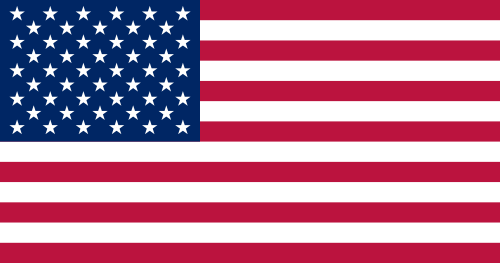Columbus Day in the United States embodies a complex intersection of history, culture, and politics. While it began as a celebration of Christopher Columbus’s historic voyage and Italian-American heritage, it has evolved to encompass a broader dialogue about history, colonization, and the experiences of indigenous peoples.
As America continues to grapple with its past and seek a more inclusive understanding of its history, the observance of Columbus Day and Indigenous Peoples’ Day offers an opportunity for reflection, education, and cultural appreciation.
Columbus Day became a federal holiday in 1937. It celebrate the anniversary of Christopher Columbus’s arrival in America on October 12, 1492.
When is Columbus Day in the United States:
| 2024 date | Monday, October 14 (United States) |
|---|---|
| 2025 date | Monday, October 13 (United States) |
| 2026 date | Monday, October 12 (United States) |

The Origins and Celebrations of Columbus Day in the USA
Columbus Day, a federal holiday in the United States, is a day that both commemorates and causes controversy. Its origins and the ways in which it is celebrated have evolved over time, reflecting the changing attitudes and cultural mores of American society.

The Historical Background
Columbus Day marks the anniversary of Christopher Columbus’s arrival in the Americas on October 12, 1492. This event was significant as it represented the first encounter between Europeans and the indigenous peoples of the Americas, leading to a profound and lasting impact on the history of the world.
The celebration of Columbus Day in the United States can be traced back to the 18th century. Initially, it was not a federal holiday and was primarily observed by Italian-Americans as a celebration of their heritage, given Columbus’s Italian origins. The Knights of Columbus, a Catholic fraternal organization, played a key role in promoting the holiday as a way to counteract prejudice against Italians and Catholics.
Federal Recognition
It wasn’t until the 20th century that Columbus Day gained federal recognition. In 1937, President Franklin D. Roosevelt, partly influenced by the lobbying of the Knights of Columbus, proclaimed October 12 as a national holiday. Later, in 1971, the date was changed to the second Monday in October, as part of the Uniform Monday Holiday Act, which aimed to provide workers with more three-day weekends.
Celebrations and Traditions
Traditionally, Columbus Day has been celebrated with parades, religious ceremonies, and other public events. Cities with significant Italian-American populations, like New York and San Francisco, have historically held large parades. These events often include floats, marching bands, and elaborate festivities, reflecting the pride of Italian-American communities.
In schools, Columbus Day has been an opportunity for educators to teach about the age of exploration and the historical significance of Columbus’s voyage. However, the narrative has been evolving, with more emphasis on the impact of European colonization on indigenous peoples.
Controversy and Changing Perceptions
In recent years, Columbus Day has become a subject of controversy. Critics argue that celebrating Columbus glorifies European colonialism and overlooks the suffering and displacement of Native Americans caused by European expansion. This perspective has led to a shift in how the day is observed in some parts of the country.
Alternative Observances
As a response to the controversy surrounding Columbus Day, some states and cities have chosen to recognize the second Monday in October as Indigenous Peoples’ Day. This observance is intended to honor the history and culture of Native American peoples and acknowledge the hardships they faced following European colonization. Indigenous Peoples’ Day is celebrated with cultural events, educational activities, and ceremonies that highlight the traditions and history of Native Americans.

